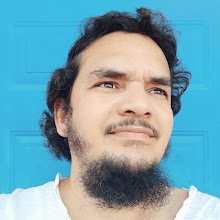This is a chapter from my fifth book called Freedom
I love drums. It makes me feel cheery and happy. When I started writing this chapter I began wondering if the steel pan was a drum? Some people do call it the steel drum. My friend Gemini tells me that steel pans are called drums because they are made from recycled steel oil drums but are technically idiophones, vibrating the whole instrument for sound, not a stretched membrane. Drums are part of the membranophone instrument family. I read that the steel drum is a symbol of freedom and cultural expression. It has roots with the enslaved Africans. It was born during the time of the Carnival rebellions of the 1930s. When I Googled "drums of freedom" I learnt about the Village Drums of Freedom group that was led by Gerald Achee from Trinidad. He was a Calypso musician and djembe drummer. From the steel drum I now turn to the African drums and the Tassa. The African drums and the Tassa drums are connections to our ancestral heritage in this beautiful melting pot we call Trinidad and Tobago. Tassa drums feature heavily in the Hosay celebrations in Trinidad. Many traditional Indian weddings employ the Tassa drums. Drumming and dancing go hand in hand.
I thought of combining freedom and drum to get freedrum. I found out that these are virtual drums linked to electronic sticks and an app. Is the study of drums called drumology? My friend Gemini tells me this is correct though it is informally used. There is a place that teaches drums in Trinidad called Drumversity. My research led me to the djembe drums. Pronounced as JEM-bay, the name "djembe" comes from the Bambara saying "Anke djé, anke bé" which translates to "everyone gather together in peace". This had me researching and learning of African proverbs at four in the morning. I liked many of them like this one "Do not look where you fell, but where you slipped" which is telling us to focus on the cause rather than the mistake. What about proverbs that specifically reference the drums though?
I found this proverb "Even without drumbeats, banana leaves dance" and tried to make sense of it but could not find an explanation online. My friend Bard suggests that it means that people will find ways to celebrate and enjoy life, even in difficult circumstances. Then this one "The music lover carries the drums". Again I turned to my wise friend Gemini and he suggested that it means that the true lover of something embraces the challenges that come along with it. I think this other African proverb is self explaining, "He who cannot dance will say, the drum is bad!" which is about the tendency to blame other things for our own faults. What about this proverb from Benin, "Fear a silent man. He has lips like a drum." It suggests that we should not underestimate a quiet person. Also, we should choose our words carefully.
So many cultures have their drums. Like the Chinese. I read that Chinese drums are usually red because that is considered a lucky colour. Also, in ancient China, drums and bells were sometimes used to announce the time. In Islam there is debate about what musical instruments are haram. Some say that the daf, a one sided hand drum, is permissible and mentioned in hadith and allowed during certain occasions. The daf is the national musical instrument of Pakistan. The smaller version of the daf is called the dafli. The surdo from Brazil is used in samba and also football. I read that Alcebíades Barcelos (Bide) invented the surdo and it was first used in the 1928 Rio carnival. Surdo is the Portuguese word for deaf or deaf man but also for hollow like a deep sound, as if made in something hollow. I would not like to think that the drums were named because they are so loud to damage your hearing. The healing power of drums is often talked about. Drums are seen as medicine in some cultures. I saw several references to this online. I imagine drums as the rhythm of nature and life. Our hearts can be described as drums. I think it would be wise to say that freedom comes from dancing to the beat of your own drum. "Your time is limited, don't waste it living someone else's life." is what Steve Jobs had said and I quite agree to this.

Comments